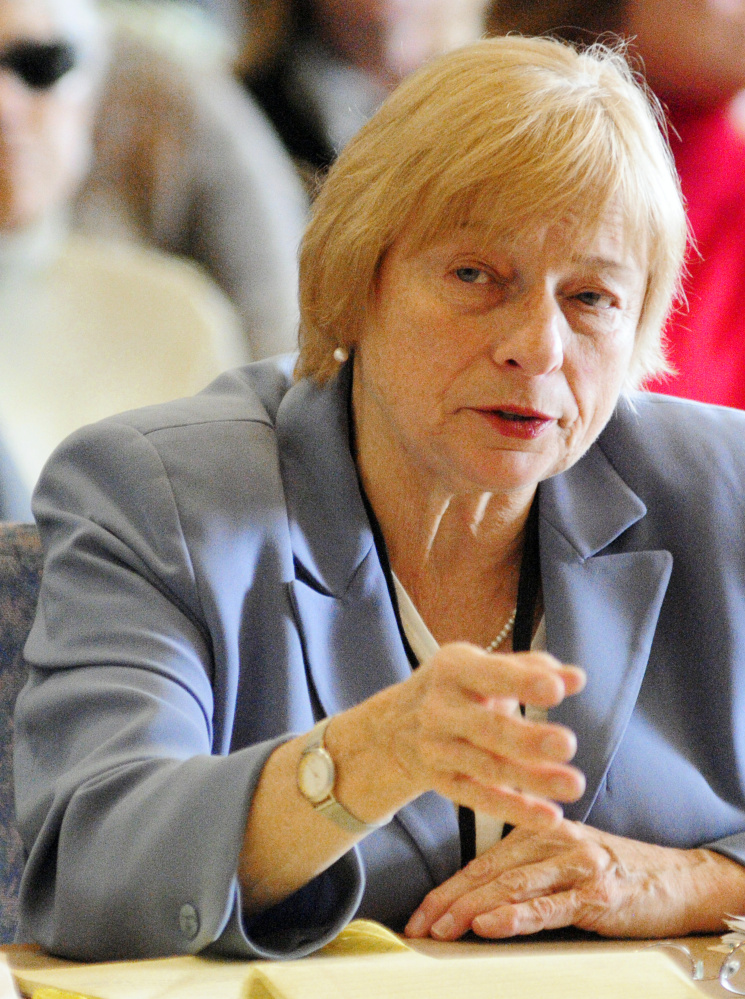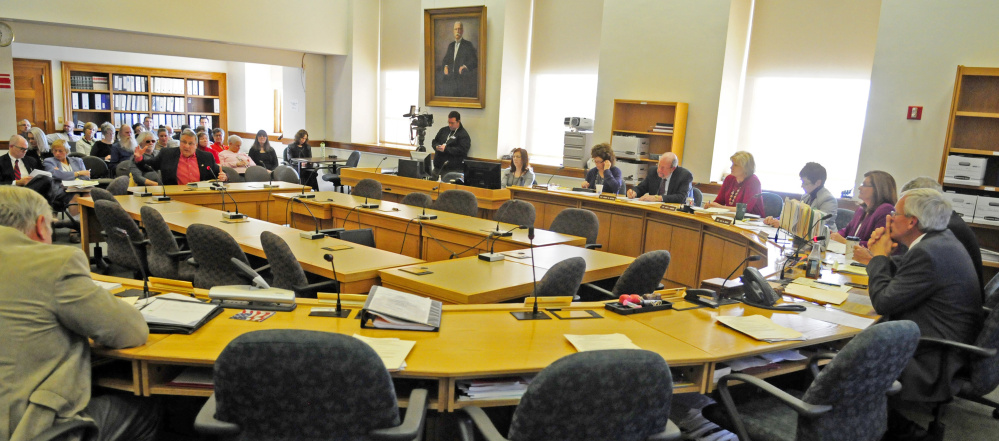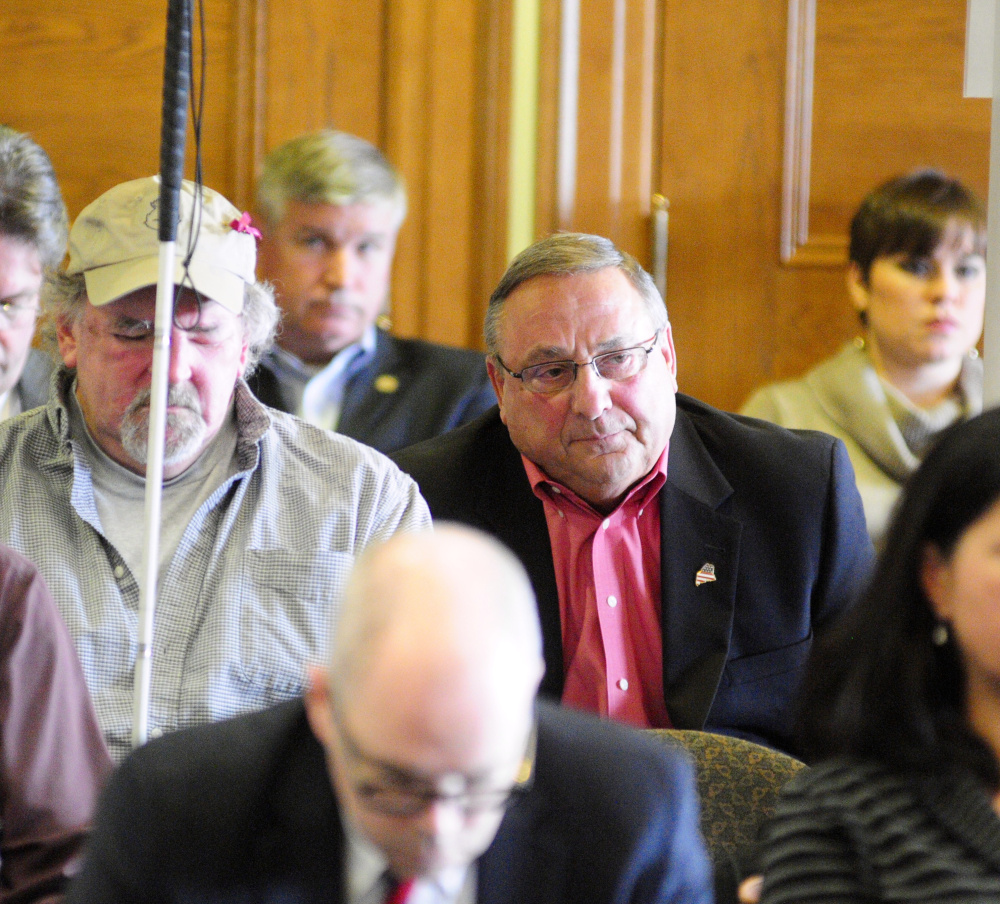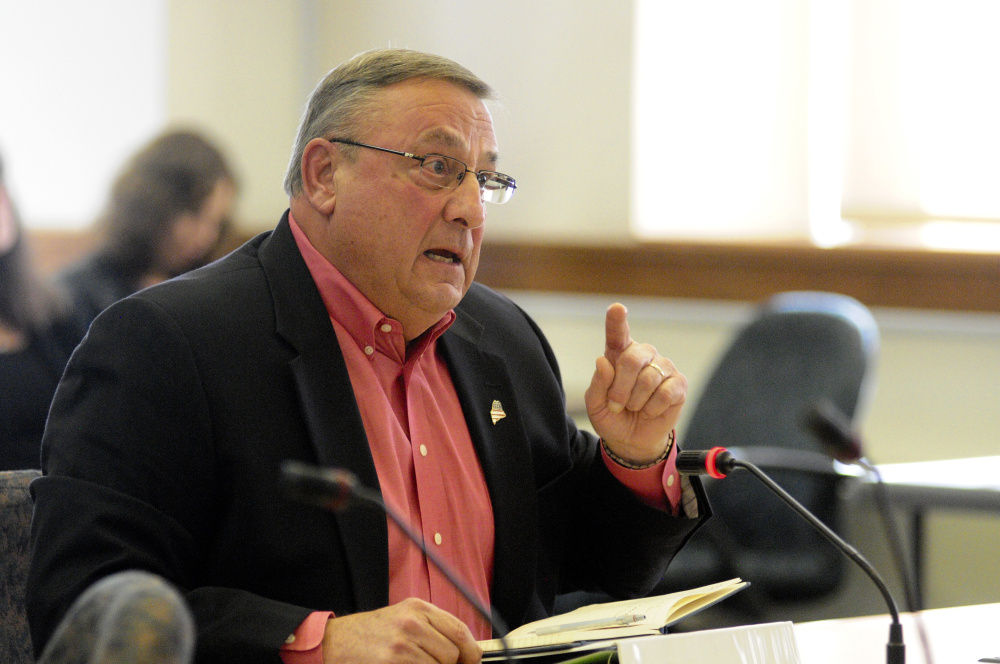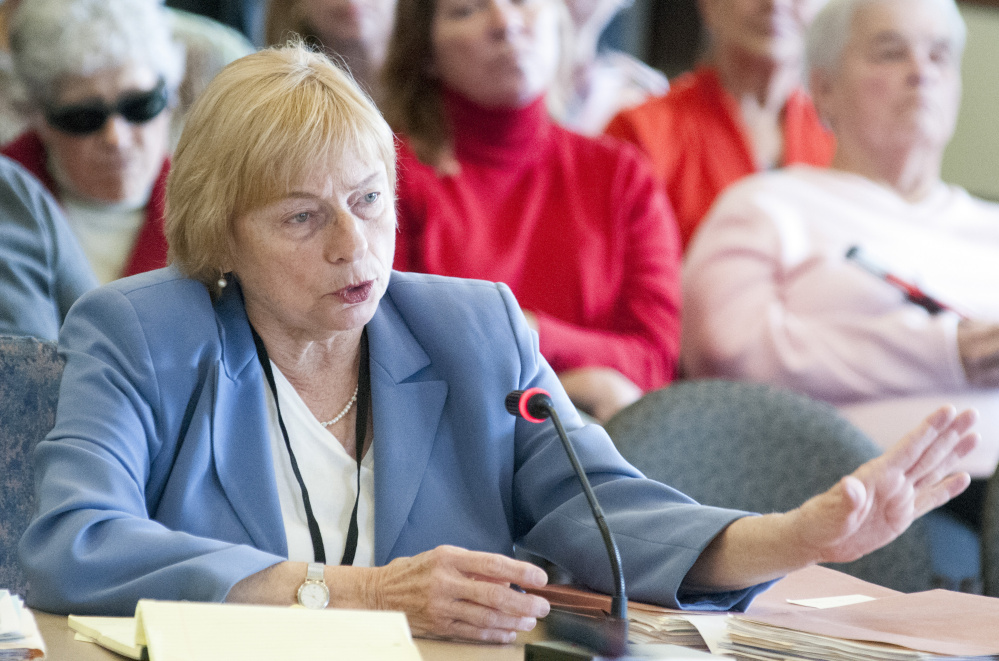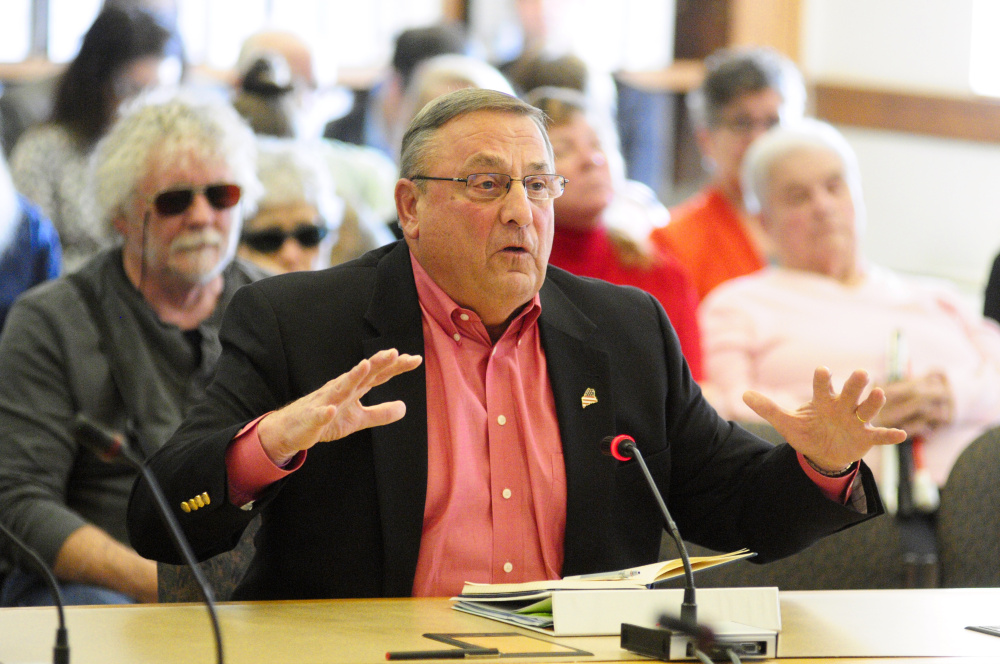AUGUSTA — Gov. Paul LePage told legislative budget writers Thursday that the state’s drug epidemic requires a swifter, more robust law enforcement response and that he will deploy the Maine National Guard if the Legislature doesn’t act to provide more drug agents.
“We are in dire need,” LePage said in a surprise visit to the Appropriations and Financial Affairs Committee. “In fact, next week I’m going to approach legislative leadership and ask for more resources. And if not, I’ll be forced to call up the National Guard.”
He later added, “You either work with me and give me some agents, or I will call the guard up.”
Governors are considered commanders in chief of guard units in their states, with the authority to press the guard into service for civil emergencies. It’s unclear, however, what roles the guard could play in responding to Maine’s drug crisis because federal law limits how military personnel can be used to enforce domestic laws.
The governor’s unscheduled appearance came during a briefing by Attorney General Janet Mills on ongoing initiatives to address the drug problem. Mills discussed a comprehensive approach, including treatment, law enforcement and prevention, all of which have been discussed by interested groups since the governor’s drug summit in August. But LePage reminded the committee that the purpose of his summit was attacking the “supply side” of the trade.
“You can agree, disagree, it makes no difference, but every day you’re going to see more dead people,” he said. “Every day you’re going to see more guys like ‘Smooth,’ ‘AK’ and ‘PK’ and ‘Scummy’ and ‘Shifty’ coming up from Connecticut, New York, Pennsylvania. It’s going to continue.”
LePage’s mention of “Smooth” was an apparent reference to Dionhaywood “Smooth” Blackwell, 31, of New Haven, Connecticut, who was arrested and charged with felony drug trafficking on Sept. 11, along with four other individuals. The other names the governor mentioned were presumably fictitious.
LePage said he didn’t oppose a comprehensive approach to the drug problem, but he believes there is an immediate need for more law enforcement. He told lawmakers Thursday that he needs 10 more agents for the Maine Drug Enforcement Agency, as well as more drug prosecutors and judges. The Legislature approved a budget in June that includes six new MDEA agents, two state prosecutors and two judges for additional drug arrests and court cases this year. However, LePage has said that’s not enough.
He called on lawmakers to hold a special legislative session to fund the additional hirings he’s requesting. It’s unclear how much the proposal would cost, though LePage later estimated a price tag of between $5 million and $6 million.
The Senate is set to convene Nov. 19 to vote on gubernatorial appointments.
Lawmakers on the committee asked the governor how he’d like to fund his proposal. He said it was up to the Legislature.
LePage was later asked by reporters how he planned to deploy the National Guard. He said that guardsmen would be called in to assist the MDEA or law enforcement.
The National Guard already has assigned personnel to the MDEA, but only in an analytical and intelligence gathering capacity.
Mills told reporters that the National Guard “is very helpful in data analysis,” but “they’re not law enforcement officers.”
She added, “They’re not boots on the ground. My understanding of federal law is that they’re not allowed to do police work.”
Mills said she was pleased that the governor said he’s willing to work with the Legislature on a comprehensive strategy to address the drug problem. She also supports an enforcement strategy, but said that immediately funding MDEA agents wouldn’t necessarily put them on the streets, noting that it wasn’t clear to her whether the additional agents included in the budget had been hired yet.
“I know it’s not easy to fill those positions,” she said. “You don’t just hire anybody off the street to become an undercover agent. You have to hire a person with character as well as experience.”
She added, “This is an epidemic … and what I learned from talking to other (attorneys general) in eastern states is that it’s an epidemic in their states, too. I’m so glad that we’re all talking to get the bad guys off the streets before they get here. The fact is, you can arrest Joe Schmoe in Augusta, or Portland, or Fort Kent with a thousand bags of heroin and take them off the streets. Tomorrow there will be 10 more (dealers) to take his place. That’s a fact.”
The governor’s message to the committee was forceful, but his exchanges with lawmakers remained civil – unlike several of his recent encounters.
Nonetheless, lawmakers also appeared perplexed at the governor’s intentions, both in terms of his vow to activate the National Guard and how he wanted fund to the enforcement proposal. Typically, governors propose budget requests and legislation. But LePage said he would no longer submit budget requests because the Legislature has rejected his previous attempts.
Sen. Linda Valentino, D-Saco, a member of the committee, said in a statement that “the governor was very passionate when he showed up today, but came with very few details.”
“So there are so many unanswered questions about what, exactly, he wants,” she said. “What is his proposal? How much will it cost? How does he propose we pay for it? We need answers to those basic questions before we can think about coming in for a special session.”
House Speaker Mark Eves, D-North Berwick, said lawmakers and the governor needed to work together. However, he said lawmakers would not come back for a special session to “have a partisan fight or waste taxpayer dollars.”
“We need a comprehensive approach and I was glad to hear the governor put an emphasis on treatment and education,” he said. “His administration has shut down treatment facilities and that has been a huge concern for us. We have several bills in for the January session to address both treatment, recovery, and enforcement.”
Steve Mistler can be contacted at 620-7016 or at:
smistler@pressherald.com
Twitter: stevemistler
Send questions/comments to the editors.


